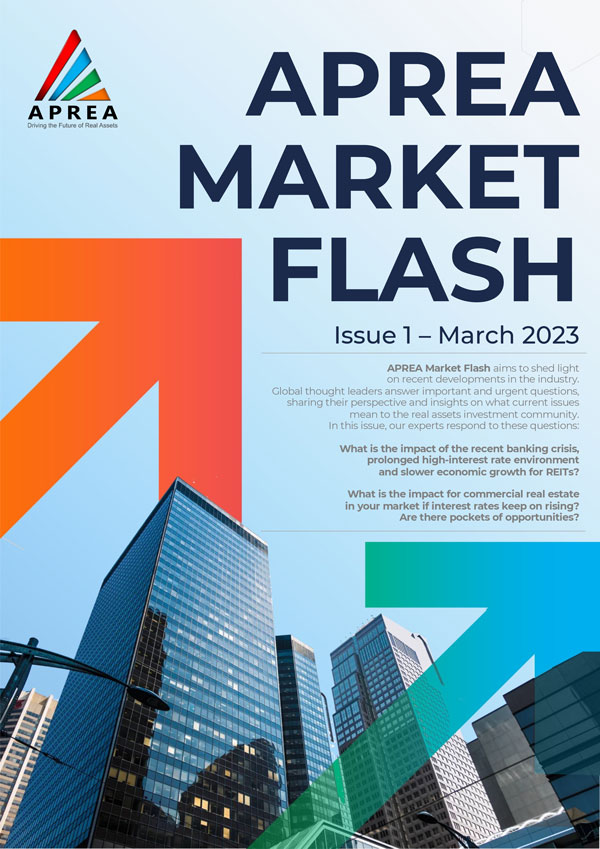The world is in transition. We are seeing the shift towards a low carbon economy. The transition is a response to climate change, technological innovation as well as demographic shifts. The transition to a low carbon economy requires collaboration across all sectors, from investors, regulators and customers.
At BlackRock, we believe that climate risk is an investment risk. By investing in properties that take into consideration financially material physical and transition risks, alongside other information, investors may create a more resilient and valuable portfolio. It supports responsible business practices and leads to risk-adjusted financial benefits in the long term.
Sustainable investing in real estate can be a powerful way to align positive environmental and social outcomes with financial goals. As investors, part of the decision-making process is to incorporate financially material environmental, social and governance considerations, alongside other information to enhance risk-adjusted returns.
Decarbonizing hard-to-abate sectors requires technological innovation. It requires the deployment of clean energy technologies and the decarbonization of heavy industries. Government policies and regulations also play a role in low carbon transition and help provide incentives to invest in clean technologies. It is a complex and challenging task.
Improving property design and operations is crucial to reducing carbon footprint as they become resource efficient and support healthier and livable communities. The use of renewable energy, energy-efficient design, better building materials and smart technologies are some of the ways that asset owners and managers can prioritize to add value to the property. Smart technologies can be used to monitor energy use, water consumption and other aspects of building operations. The use of renewable energy in real estate can be one of the best ways to reduce carbon footprint and reduce energy costs in the long run.
In addition to these strategies, asset owners can also focus on creating more sustainable communities. Building designs that connect to public transportation and cycling paths and incorporating amenities such as green spaces can promote a healthier lifestyle.
Overall, real estate has a significant role to play in sustainability, and by adopting sustainable practices and technologies, real estate owners can future-proof their assets by reducing their environmental impact, improving their communities, and creating a more sustainable future.

Head of Sustainable Investing
APAC Alternatives
BlackRock
Cushman & Wakefield’s Office Fit Out Cost Guides provide an indication of the fit out construction costs for occupiers across key cities around the world. Whether it’s a basic, collaborative, or advanced hybrid fit out requirement, these Guides compiled by our Project & Development Services team serves to assist occupiers in defining their capital planning and relocation budgets.
The Guides include a comprehensive fit out cost section covering furniture, professional fees, mechanical & electrical works, construction works, audio visual/IT and other miscellaneous costs, as well as reinstatement and retrofit costs.
Estimated costs provided in our Guides are indicative of market averages based on certain assumptions. Extra costs for specific projects may defer to those presented – we recommend engaging a Project & Development Services professional to advise on precise costings base don your unique construction requirements.
Download the Report Read MoreCDL’s Integrated Sustainability Report 2023 is their sixteenth sustainability report since 2008. Themed “Zero in on Positive Impact”, the digital report communicates CDL’s progress towards their material ESG goals and targets, established under the CDL Future Value 2030 sustainability blueprint. External assurance is key to enhance data credibility and instill confidence in readers. CDL’s external assurance of their sustainability report started in 2009 and has continued to expand. ISR 2022 and ISR 2023’s external assurance has been further elevated in its scope against the GRI Standards, SASB Standards, as well as the TCFD and CDSB frameworks.
This report was originally published in https://cdlsustainability.com/
Download the Report Read More
APREA Market Flash aims to shed light on recent developments in the industry. Global thought leaders answer important and urgent questions, sharing their perspective and insights on what current issues mean to the real assets investment community.
In this issue, industry experts respond to these questions:
What is the impact of the recent banking crisis, prolonged high-interest rate environment and slower economic growth for REITs?
What is the impact for commercial real estate in your market if interest rates keep on rising? Are there pockets of opportunities?
Download the Report Read MoreThe growth of major life sciences companies has started to normalise after a period of significant growth during the height of the pandemic. Weaker revenue growth and capital funding in the face of slowing global economies is shaping a new competitive landscape for the life sciences sector and the need for companies to rethink their real estate strategy.
This report explores the latest life sciences real estate trends and their impact on real estate strategy. It also examines the latest developments in R&D Laboratory and Office portfolios, as well as investment demand.
Key highlights are below:
This report was originally published in https://www.cbre.com/insights/reports/2023-asia-pacific-life-sciences-real-estate-trends
Download the Report Read More